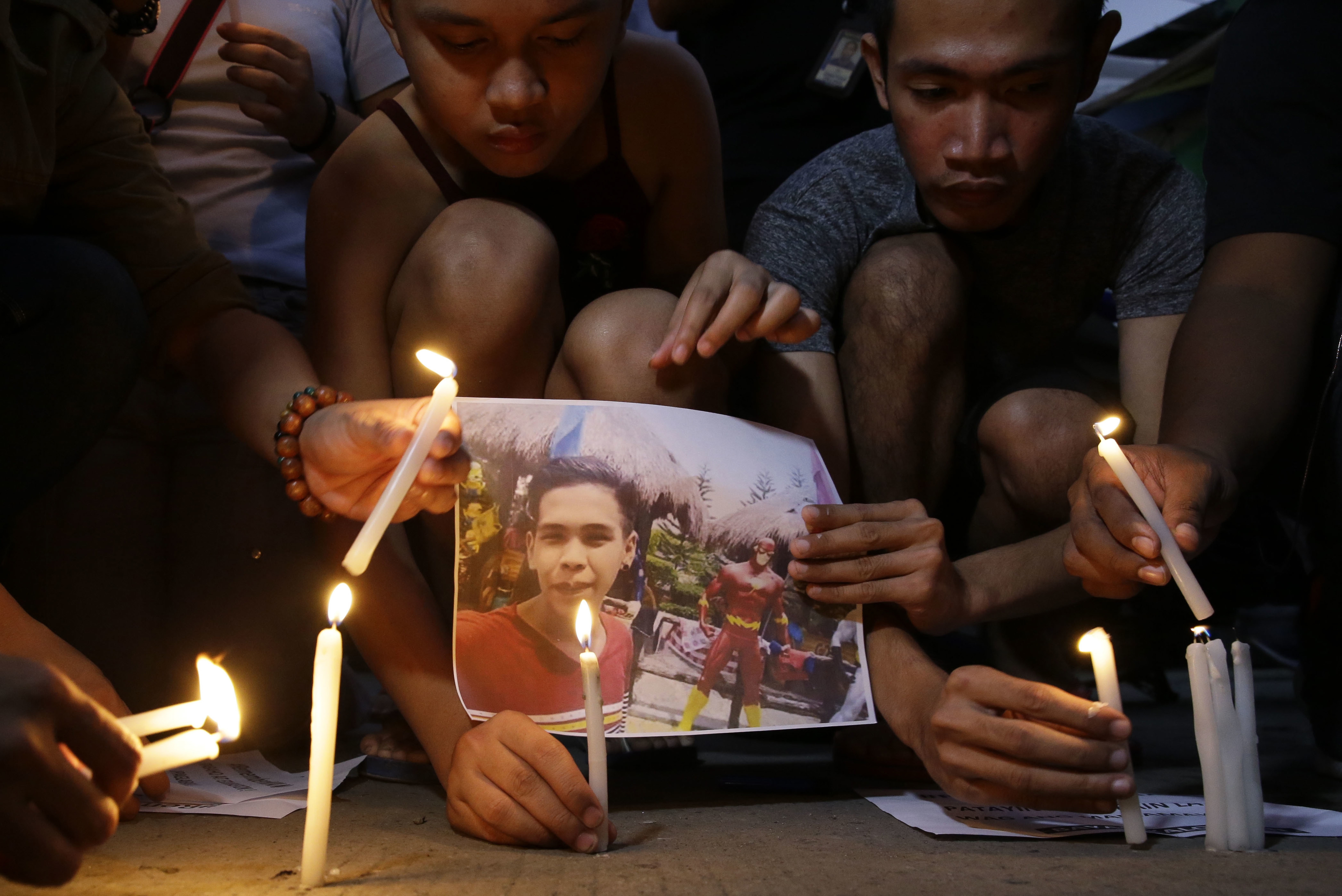Kian slay convictions lift hopes of other EJK complainants

FLICKER OF FAITH Families of other victims of alleged extrajudicial killings get a morale boost from the Delos Santos case verdict. —AP
As Kian Loyd delos Santos’ family basked in the triumph of the court’s conviction of three former Caloocan City police officers for his cold-blooded murder in 2017, the euphoria also lifted the spirits of the lawyers and families of other victims in President Rodrigo Duterte’s bloody war on drugs.
On Thursday, PO3 Arnel Oares, PO1 Jeremias Pereda and PO1 Jerwin Cruz became the first policemen convicted of a planned killing in connection with the brutal antidrug campaign that has killed close to 5,000 mostly poor people since 2016.
Caloocan City Regional Trial Court (RTC) Judge Rodolfo Azucena Jr. sentenced them to up to 40 years in prison without parole for murdering the Grade 12 student on Aug. 16, 2017—the second day in a weeklong wave of killings across Manila that left nearly 90 dead.
“The decision of the Caloocan RTC can be considered a victory, but the murder conviction against the policemen still isn’t just for the death of Kian delos Santos,” said human rights lawyer Chel Diokno, founding dean of De La Salle University College of Law.
EJKs ‘do exist’
Article continues after this advertisement“The systematic killings should be abolished, and the leaders of these heinous acts should be held accountable under the law. The justice that the Delos Santos family attained should also be attained by the thousands of families also victimized by EJK (extrajudicial killing),” he said on his Twitter account on Thursday.
Article continues after this advertisementGil Aquino of Center for International Law (Centerlaw) said the conviction was a “welcome development.”
“[Kian’s case] may not be the basis for other EJK cases, but it gives a sense to the Filipino people that these do exist contrary to police claims,” he added.
Centerlaw, a private law firm that has won at least two equally monumental legal victories for alleged EJK victims, is one of the few local groups that have taken on cases of human rights violations (HRVs) related to the drug war.
In 2017, Centerlaw secured two writs of amparo for the families of impoverished communities in Payatas in Quezon City and San Andres Bukid in Manila. Under the writs, policemen are ordered to stay at least 1 kilometer away from the homes and workplaces of victims of the drug war.
Before Delos Santos’ case, there were slim chances of prosecuting policemen as Mr. Duterte himself promised immunity or pardon for officers who kill drug suspects.
Human rights lawyer Ansheline Bacudio, who works for a pro bono legal firm, said survivors were often reluctant to press charges for fear of reprisals.
“Unlike Kian, too, most cases of EJKs or HRVs have very few evidence and no eyewitnesses,” she said. “That’s why Kian’s case is a precedent because we at the ground level would know what type of evidence or testimony could hold in court.”
“Only a handful” of alleged EJK cases have reached the courts, according to Commission on Human Rights Chair Chito Gascon.
“Much more remains pending before the different prosecutors’ offices under preliminary investigation. Even more than that (are those) remaining with law enforcement under continuing investigation,” Gascon said.